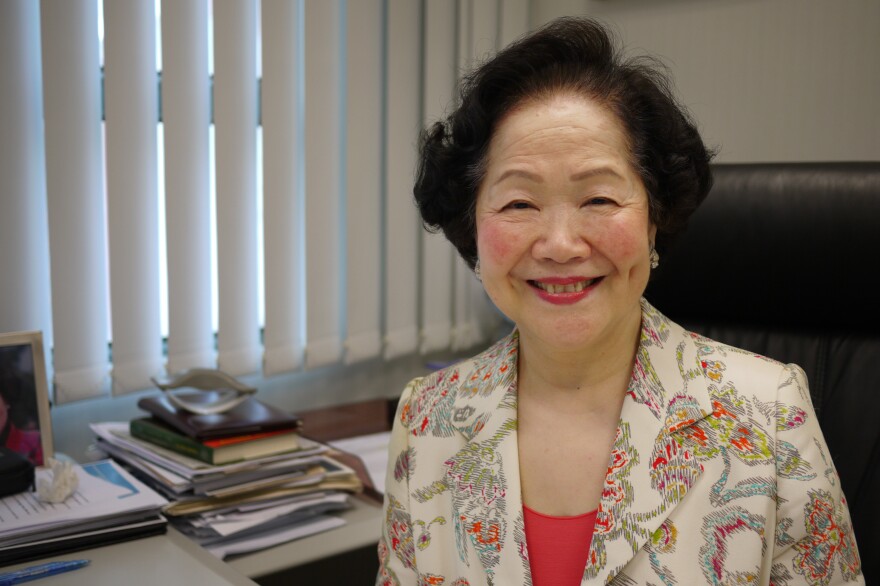In a city as packed as Hong Kong, what's private elsewhere becomes public — like conversations about politics. In the shade of a tree, a middle-aged man in a park tells me he likes China's government and he's not worried about its impact on his city.
Old women sitting on a nearby bench overhear him and shake their heads in unison until one of them stands up.
"Tell the truth!" one of the women yells.
She and the man exchange a few choice words and then he gets up and storms off to find another bench.
Twenty years after Hong Kong, a city of more than 7 million people, was handed back to China by Great Britain, conversations about the mainland's impact can still be fraught.
"Some people don't have a brain to think!" exclaims Anita Wong, a 65-year-old retired accountant. "People who are educated and can think for themselves aren't happy with China."
Wong, who used to work at an international school in Hong Kong, says China's government detains anyone who criticizes it and is trying to control the minds of the city's youngest residents by changing school curricula. She says the situation is so bad that even C.Y. Leung, the city's outgoing chief executive, opted to send his own child away.

"His daughter went to my school until the second grade, when he sent her to England," she says. "Everyone who can afford to escape the Chinese system is doing just that."
And that's what Anson Chan wants the rest of the world to understand. She oversaw the 1997 handover as the city's chief secretary.
Chan says China has broken the promise it made 20 years ago to allow Hong Kong a degree of autonomy and for the people of the city to vote directly for their chief executive. Instead, China has tightened its political grip over the city, spurring violent protests.
Chan says the U.S., the European Union and anyone else who deals with China on an international stage should study how Beijing has treated Hong Kong as a cautionary tale. "You're not just talking about the 7.3 million people living in the 1,000 square kilometers called Hong Kong," says Chan.
"What sort of a China would the rest of the world want to deal with?" she says. "A China that is increasingly autocratic, that takes increasingly repressive measures on its own people? Or a China that moves progressively towards greater political liberalization, embracing a rule based on order and embracing also of universal values?"
Emily Shi, a 27-year-old flight attendant, says Chinese control over the city has meant more pressure for her and her family. She was born and raised in the city, but can no longer afford to live in the neighborhood where she grew up.
"There are more mainland Chinese emigrating here. They're pushing the housing prices up, and I can't buy a place to live," she says. "My husband and I are putting off having children because we don't have the space."
This is becoming a more common complaint here. Income inequality is at its highest in 40 years, according to government figures.
But not everyone here thinks the Chinese are so bad. A retired woman who would only tell me her last name, Wong, so she could talk freely about politics, relaxes in the only place where there's room for a park — the median of a road.
"The government is good," she says. "Thanks to them, I have my welfare checks. The people who criticize China aren't seeing the good things they do. Life in China has gotten so much better and happier."
Wong says she loves China. I ask her if she has ever considered moving there.
"No," she says. "There's no freedom of speech there."
Copyright 2020 NPR. To see more, visit https://www.npr.org.



